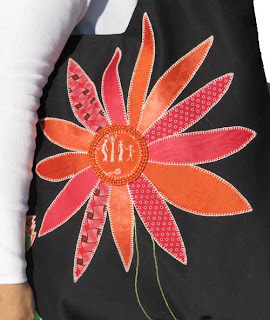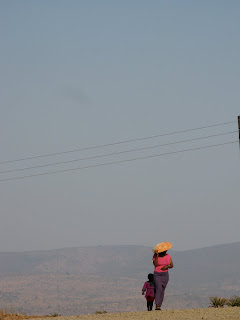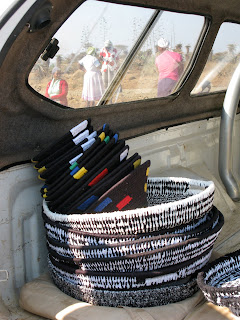http://www.amarasti.com/
Made in Swaziland
Tuesday, August 17, 2010
Friday, August 13, 2010
Thursday, August 12, 2010
Very Warm and Soft: Rosecraft's 2011 Collection
 |
| Fleted kid mohair scarf |
 |
| Knitted shawl-brushed mohair |
 |
| Net loop scarf, brushed mohair |
 |
| Net shawl brushed mohair |
 |
| Woven cotton scarf |
 |
| Woven kid mohair scarf |
 |
| Woven silk scarf |
 |
| Woven bamboo shawl @all images by Lisa King |
Rosecraft: A Family Legacy and a Love Story about Africa
What started as a small workshop in 1974 is nowadays a thriving business that sells products locally and internationally. We are constantly working on the design of our products and the skills of our Artisans to keep ahead of the world trends.
Through a combination of contemporary design and traditional methods, Rosecraft creates luxurious accessories that boast the vibrant colours of Africa. Our designs have an African soul but are inspired by international trends: the results are distinctive creations for individuals who appreciate the uniqueness of handmade pieces. All our pieces are handmade from pure natural fibres of mohair, organically grown cotton, bamboo, wool and silk. We are constantly searching for new organic materials to keep our range innovative and eco-friendly. What started as a small workshop is nowadays a thriving business that sells it’s products locally and internationally and employs over 40 rural women, empowering them through skills training and fair wage that allows them to provide for their families.
Rosecraft Collection 2011 : Modern serenity with a Swazi Spirit
Marcella Echavarria (ME):What was your inspiration for this collection
Mollie Lanir (ML): You were my inspiration! Inspired by international trends, using traditional techniques
ME: What materials are you using? Why did you choose them?
What about colors?
ML: Using pure natural fibres of Mohair, Silk, Wool, Organic Cotton and Bamboo in pure light neutral colors
ML: We are currently employing over 35 Rural women, empowering
them through skills training and a fair wage.
ME. Please tell us about the process
ML: Our knitting, crocheting and spinning artisans are home based,
while at our workshop we have highly skilled weavers and ladies
finishing off our pieces.
 |
| Add caption |
 |
 |
| @all images by Lisa King |
Saturday, July 31, 2010
Gone Rural: Grass Turned Pride, Happiness and Possibilities For Swazi Women
Gone Rural was registered as a company in 1992 by the late Jenny Thorne to generate sustainable income for women in rural communities across Swaziland. What started as a small local business working with 30 women has evolved into an international company providing income for over 731 rural women and supplying their products to retail outlets across the world.
Gone Rural is fast becoming a globally recognized model of socially responsible business that promotes understanding and respect of Swazi cultural heritage and tradition. Our quest is for never ending improvement in the daily lives of our women artisans through economic empowerment and the upliftment of the thirteen communities that we work with.
The Gone Rural business model is committed to a holistically sustainable ideal which includes ongoing community development and responsible utilization of natural, renewable resources. The combination of innovative, contemporary design and exceptionally talented artisans has enabled our success. We are members of the WFTO (World Fair Trade Organisation) since 2006.
Gone Rural’s unique home accessories combine hand skills with high end design and are hand woven from sustainable, local natural fibres. We are continuously developing innovative designs and techniques to keep our product range of interiors, African vessels, gift sets and table ware fresh and dynamic. When a new product has been created, or a new technique used, training workshops are held to ensure high quality and to assist skill sharing among our women. Several women from each of our groups are invited to the workshops where samples are produced. These women then act as trainers for the rest of their respective groups. As our product range broadens we are using more mixed media, partnering other local companies for the materials required. Ceramics, re‐cycled glass and metal products are bought in and incorporated into the Gone Rural range.
Gone Rural founded a non‐profit organisation in 2006, Gone Rural boMake, to assist the women and their communities with education, health and social needs. Gone Rural contributes with sustainable income generation for the artisans while Gone Rural boMake complements this progress with health and education programmes for the women and their communities. Gone Rural and Gone Rural boMake work closely together supporting women to become independent and live their dreams.
 |
| Philippa Thorne, Gone Rural's designer, entrepreneur and visionary |
Subscribe to:
Comments (Atom)












































